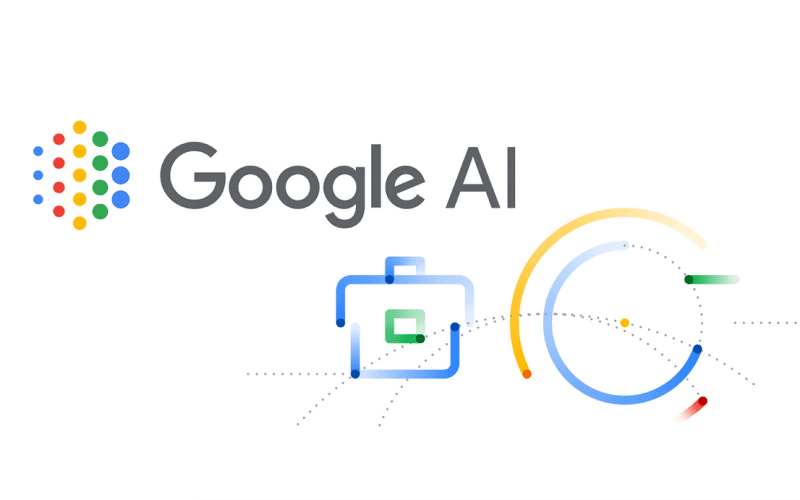How News Publishers Can Survive Google’s AI Search Tool
Google’s AI search tool is a game-changer for news publishers. It uses generative AI to provide users with more information and context on their queries, as well as answer follow-up questions in a conversational way. This means that news publishers can no longer rely on traditional search engines to drive traffic and revenue. They need to find new ways to engage their audiences and monetize their content.
But how can news publishers survive in this new era of search? What are the best practices and strategies that they can adopt to cope with Google’s AI search tool? In this article, we will explore some of the key challenges and opportunities that news publishers face in this changing landscape, and offer some practical solutions and tips that they can implement right away.

What is Google’s AI Search Tool?
Google’s AI search tool is called Search Generative Experience (SGE). It is an experimental version of Search that integrates artificial intelligence answers directly into results. Unlike a normal Google Search, which brings up a list of blue links, SGE uses AI to answer your questions right on the Google Search webpage.
SGE uses generative AI models that can produce natural language responses based on large amounts of data. These models are trained on billions of web pages, images, videos, books, news articles, social media posts, and other sources of information. They can also learn from user feedback and preferences.
SGE aims to provide users with more comprehensive and relevant information than traditional search engines. It can also handle complex queries that require multiple steps or follow-ups. For example, if you ask “what’s better for a family with kids under 3 and a dog, bryce canyon or arches”, SGE will give you an AI-powered snapshot of key factors to consider, such as distance from home, elevation gain, weather conditions, pet-friendly facilities, etc. You can also ask follow-up questions like “How long to spend at Bryce Canyon with kids?” or “What are the best trails at Arches?”. SGE will then provide you with more detailed answers based on your previous questions.
SGE is currently available in the US (English) only through Search Labs, a new way to access early experiments in Search. Users can opt into SGE by tapping the Labs icon in the latest version of the Google app (Android or iOS) or on Chrome desktop. They will then see an option to try SGE in their settings.
Why Does Google’s AI Search Tool Matter for News Publishers?
Google’s AI search tool matters for news publishers because it poses both challenges and opportunities for them. On one hand, it threatens their traditional business model based on advertising revenue from display ads. On the other hand, it opens up new possibilities for them to create value-added content that attracts loyal readers and advertisers.
Let’s look at some of the pros and cons of Google’s AI search tool for news publishers.
Pros
- More traffic: SGE can drive more traffic to news websites by providing users with more information and context on their queries than traditional search engines. Users may be more likely to click on links from SGE than from regular search results because they trust its accuracy and relevance.
- More engagement: SGE can increase engagement among users by allowing them to interact with content in a conversational way. Users may be more interested in exploring topics further by asking follow-up questions or reading related articles from different sources.
- More personalization: SGE can offer personalized recommendations based on user preferences and behavior. Users may be more likely to subscribe or pay for premium content if they see relevant ads or offers tailored to their interests.
- More innovation: SGE can inspire news publishers to innovate their content creation process by using generative AI models themselves. News publishers may be able to use these models to produce original stories or summaries based on data sources such as social media posts or images.
Cons
- Less revenue: SGE can reduce revenue from display ads by making them less visible or effective than before. Users may be less likely to click on ads from regular search results than from SGE because they find them less relevant or useful.
- Less control: SGE can limit control over content distribution by making it harder for news publishers to optimize their SEO performance. Users may be less likely to visit news websites directly, as they can get most of the information they need from SGE. This may affect the ranking and visibility of news websites on search engines.
How Can News Publishers Survive Google’s AI Search Tool?
News publishers can survive Google’s AI search tool by adapting to this new reality and leveraging its opportunities. Here are some of the strategies that news publishers can use to cope with Google’s AI search tool:
- Create high-quality content: News publishers need to create high-quality content that provides value to their readers and stands out from the crowd. They need to focus on originality, accuracy, relevance, and timeliness of their content. They also need to use multimedia elements, such as images, videos, or infographics, to enhance their content and make it more engaging and shareable.
- Optimize for voice and conversational search: News publishers need to optimize their content for voice and conversational search, as more users are using voice assistants and smart speakers to access information. They need to use natural language, short sentences, and simple words in their content. They also need to use schema markup, structured data, and FAQs to help SGE understand their content and provide relevant answers to users’ queries.
- Build trust and authority: News publishers need to build trust and authority among their readers and search engines. They need to establish their credibility, expertise, and reputation in their niche. They also need to use social proof, such as testimonials, reviews, ratings, or awards, to showcase their achievements and recognition. They also need to use HTTPS, SSL certificates, and other security measures to ensure the safety and privacy of their users and content.
- Diversify revenue streams: News publishers need to diversify their revenue streams and reduce their dependence on display ads. They need to explore alternative ways of monetizing their content, such as subscriptions, memberships, donations, sponsorships, or e-commerce. They also need to segment their audience and offer different levels of access and benefits to their content, such as free, freemium, or premium.
Conclusion
Google’s AI search tool is a game-changer for news publishers. It offers users more information and context on their queries, as well as answers follow-up questions in a conversational way. This means that news publishers need to find new ways to engage their audiences and monetize their content.
News publishers can survive Google’s AI search tool by creating high-quality content, optimizing for voice and conversational search, building trust and authority, and diversifying revenue streams. These strategies can help them adapt to this new era of search and leverage its opportunities.












